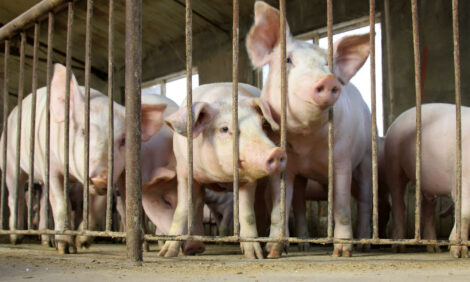



Store-bought Pork Found to Contain MRSA
US - A ground-breaking investigation by the KOMO Problem Solvers has found toxic, life-threatening Methicillin Resistant Staphylococcus Aureus (MRSA) bacteria in pork sold at grocery stores.This drug-resistant bacteria is already responsible for more deaths in the US than AIDS. What makes MRSA so potentially dangerous is the bacteria can cause sickness just by touching it.
In spite of the risk, the US Department of Agriculture (USDA) has resisted testing store-bought pork for the aggressive bacteria. So, in partnership with its sister stations across the region, KOMO and the Problem Solvers decided to test it themselves.
No matter how you prepare it, the popular wisdom holds that as long as you cook meat thoroughly it won't make you sick. But popular wisdom doesn't take MRSA into account.
"MRSA is a very different kind of bacteria," said Dr. Rebecca Goldburg, a biologist with Keep Antibiotics Working.
KOMONews.com cites a few examples to illustrate the dangers of MRSA. A few months ago a University of Iowa study found a virulent strain of MRSA in pigs. But, in spite of that information, no one from the USDA is testing.
"As far as I'm concerned," said Goldburg, "USDA and FDA are kind of asleep at the wheel on this one."
The Procedures
The scientists followed standard testing protocols and found MRSA in three different samples; all were ground pork. The positive samples were from purchases made in Oregon, California and Idaho -- three of the four states where we tested.
"The interesting situation here," said Samadpour, "is that now we have something that you would worry about in terms of wound infections in foods."
Like most other bacteria, MRSA will die if it's thoroughly cooked. But unlike E. coli or salmonella, MRSA causes skin infections, so just touching raw pork that has the bacteria could be a problem, according to both Samadpour and Goldburg.
"So that raises the possibility," says Goldburg, "that simply handling meat could potentially give you a very nasty infection."
Canada and several European countries already test pork in grocery stores for MRSA. The USDA was contacted and they said they had no plans for any testing.
"It really disturbs me," said Boutte. "We have enough things out there that we can catch, we don't need any help from other sources, and if the government is not going to be able to step up and help us out - what's the point?"
The National Pork Board just began testing pork in retail markets. Their study won't be finished for another six months, but their preliminary results are similar to ours: about a three percent positive rate for MRSA. The Pork Board said MRSA is a priority, but they don't know if it's a risk to you.
"Government should not ignore this information," said Goldburg, "I hope it'll be a bit of a wake-up call."
Boutte hopes the wake-up call makes a difference. "I would like them to think about the people that are possibly going to catch this disease and if they are able to prevent those people from catching it then they've saved one more life."
The Centers for Disease Control and the Food and Drug Administration (FDA) were also contacted. The FDA says they have started a small pilot study of raw meat in Washington, D.C., but don't have any results yet and don't know when the study will be finished.
,br>
Everyone spoken with stresses that while this information is important, it shouldn't cause anyone to panic or not want to buy pork. Making sure safe food-handling practices are used is paramount, with one additional precaution: not handling raw pork when hands have cuts or abrasions.







